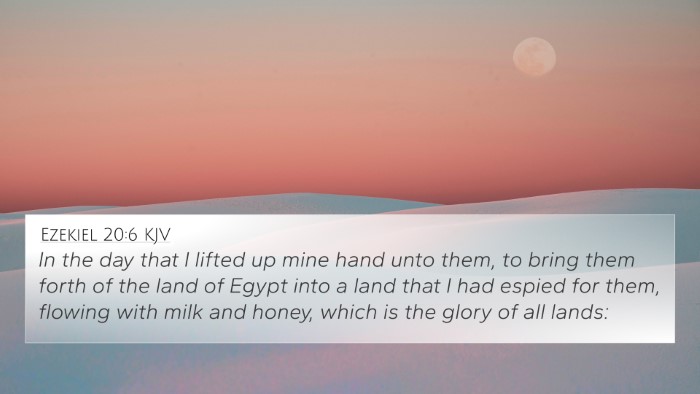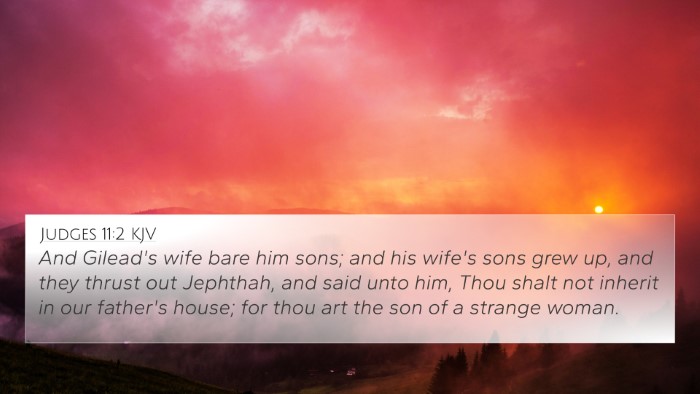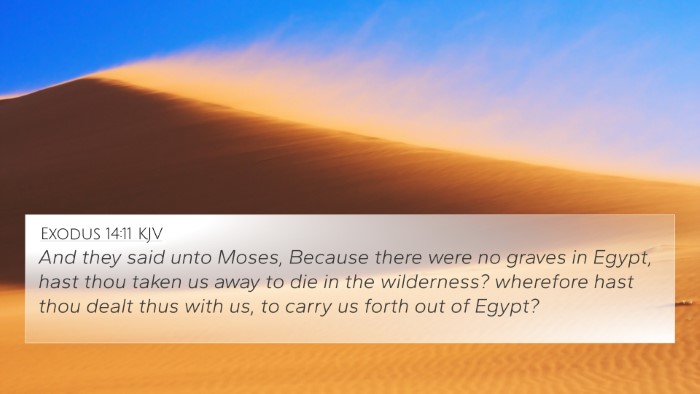Understanding Acts 7:39
Acts 7:39 states: “To whom our fathers would not obey, but thrust him from them, and in their hearts turned back again into Egypt.” This verse is part of Stephen's speech before the Sanhedrin, offering a historical context and highlighting the rebellious nature of the Israelites during their exodus from Egypt.
Summary and Commentary Insights
This verse refers to the moment when the Israelites, after witnessing the miracles in Egypt and enjoying their deliverance, decided to reject Moses as their leader. Matthew Henry, in his commentary, emphasizes that their hearts longed to return to the comforts of Egypt despite being rescued from bondage. This illustrates a profound spiritual lesson on human nature and our tendency to revert to old ways even after experiencing spiritual liberation.
Albert Barnes adds that their disobedience was not merely an external act, but a deep internal rebellion. The reference to "turning back into Egypt" signifies a desire for the security of known earthly pleasures over faith in God's promise. Such insights spark a conversation about the connections between Bible verses that discuss themes of rebellion, obedience, and faith.
Adam Clarke notes the historical significance, linking this rebellion to the wider narrative of Israel's journey. He indicates that the mention of Egypt serves as a symbol of sin and captivity. This sets a framework for understanding the importance of trust in God as opposed to returning to former ways of life, which reflects broader Biblical principles about salvation and sanctification.
Cross-References to Acts 7:39
Acts 7:39 resonates with multiple other passages which deepen our comprehension of its themes. Here are some significant Bible verse cross-references:
- Exodus 14:12: Israelites expressing a desire to return to Egypt, highlighting their fear and lack of faith.
- Numbers 11:5: A lamentation for the "flesh pots" of Egypt, showing their longing for former comforts.
- Hebrews 3:16-19: Discusses the rebellion of the Israelites in the wilderness, connecting it to disbelief in God's promises.
- John 6:66: Disciples turning back from Jesus, akin to Israel's rejection of Moses. This creates a parallel in New Testament faithfulness.
- 1 Corinthians 10:5-6: Paul warns about the consequences of Israel's disobedience serving as a warning to Christians.
- Psalm 106:24-25: Reflects on Israel's rejection of the land God had promised, akin to their rejection of their leader.
- Galatians 4:9: Paul speaks about not returning to the slavery of the old ways, invoking the theme of spiritual freedom versus bondage.
- Matthew 23:37: Jesus laments over Jerusalem’s refusal to accept Him, paralleling the rejection of Moses.
- Acts 7:35: Referencing Moses as the one chosen by God – a continuity of the theme seen in Stephen's discourse.
- 2 Peter 2:22: Discusses individuals returning to their old ways, creating a thematic connection to the resistance against God's leadership.
Thematic Connections and Analysis
Thematic analysis of Acts 7:39 reveals crucial insights concerning human behavior in relation to divine influence. The connections between Bible verses show a pattern of rejection among God’s people. Stephen’s account crystallizes around the disobedience of God’s chosen leaders, underscoring a recurring Biblical theme: the struggle between faith and rebellion.
This theme echoes through the Old Testament and into the New Testament, culminating in the rejection of Christ and providing a rich landscape for comparative Bible verse analysis. Whether it's Israelites desiring Egypt or the New Testament figures turning away from Jesus, the introspective nature of faith is highlighted.
Tools and Resources for Cross-Referencing
For those seeking to delve deeper into these themes through tools for Bible cross-referencing, various resources are invaluable:
- Bible Concordance: Vital for finding specific verses and themes across both testaments.
- Cross-Reference Bible Study Guides: Useful for tracing themes and understanding contextual connections.
- How to Use Bible Cross-References: Understanding the methodology enhances scriptural interpretation.
- Bible Chain References: Establish links between various scriptures to visualize thematic parallels.
- Comprehensive Bible Cross-Reference Materials: These provide an extensive guide for deeper study.
Conclusion
Acts 7:39 does not merely recount historical events; it invites readers into a deeper understanding of human nature beset by temptation and disbelief. Cross-referencing with other pertinent scriptures offers a profound look into the Bible's unified message of salvation, obeying God, and the eternal struggle of faith. By exploring these Bible verses that relate to each other, believers are challenged to remain steadfast in their faith and avoid the pitfalls of turning back to spiritual bondage.
















